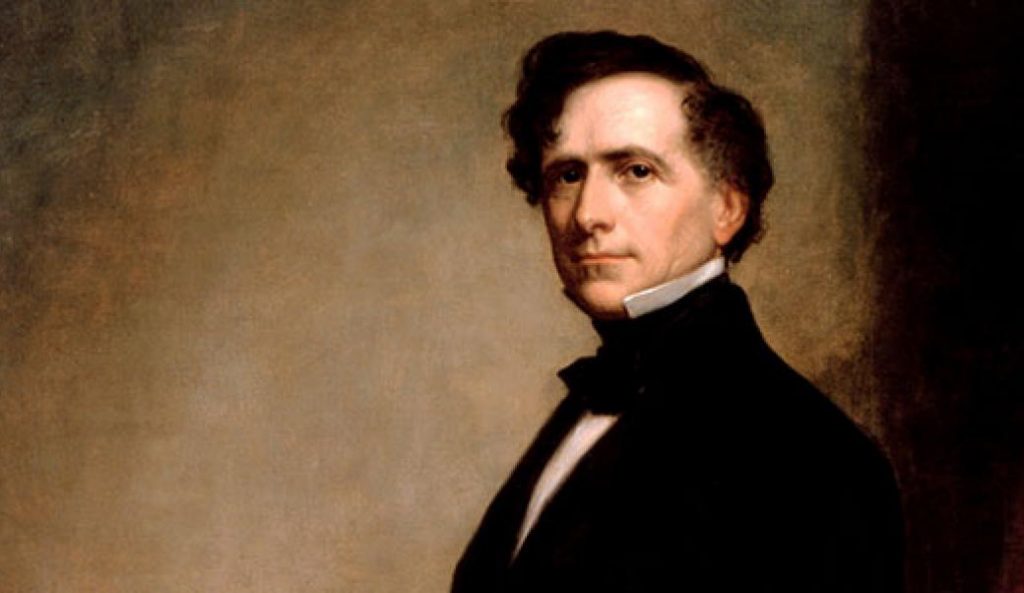
To listen to this reflection as a podcast, click here.
The first-ever presidential inauguration took place on April 30, 1789, in New York City.
On that date, Washington D.C. – the nation’s capital that would ultimately be named for the first president – was still swampland by the Potomac.
Every detail of this special event was meticulously planned. Except for one. Nobody had remembered to bring a Bible onto which Washington might place his hand. Robert Livingston, who would be administering the oath of office, happened to be a high-ranking Freemason. He knew there would be a Bible at the nearby St. John’s Masonic Lodge. Arrangements were made to hustle the Bible to Federal Hall, the site of the inauguration, just in time.
Someone opened the Bible randomly to the book of Genesis. Washington placed his hand there and repeated the oath. Then he added, famously, “so help me God.”
The Constitution does not require the president-elect to place his hand on a Bible. But precedents established by Washington have had remarkable staying power, and almost every succeeding president has chosen to do so.
John Quincy Adams and Teddy Roosevelt both declined. Because no Bible could be found on Air Force One when Lyndon B. Johnson took the oath of office a few hours after the assassination of John F. Kennedy, LBJ instead put his hand on a Catholic worship book that had belonged to JFK.
Then there’s Franklin Pierce, the 14th president who took office in 1853.
Pierce, his wife Jane, and their 11-year-old son Benjamin boarded the train that would take them from Boston to Washington for the inauguration.
Somewhere near Andover, Massachusetts, their car derailed and rolled down an embankment. Jane and Franklin survived, but Benny was found crushed to death in the wreckage.
The Pierces had now outlived all three of their children. They never recovered from the blow. Historians agree that Pierce’s presidency was almost certainly compromised because of his overwhelming grief. Jane wondered if God was punishing them for seeking elected office. She didn’t appear in public for the first two years of their time in the White House.
When Pierce came to the moment of taking the oath of office, he placed his hand on a law book. He simply couldn’t place his hand on the Bible. He just couldn’t.
It was a moment of extraordinary presidential honesty. Pierce believed in God. But what kind of God could allow the excruciating pain of losing his children?
It’s tempting to believe that the opposite of faith is doubt. It’s not. The opposite of faith is unbelief – choosing to ignore God’s claims on our life. Doubt is faith under pressure – faith that is being crushed by unanswered questions or unrelenting pain. Where is God in all this? Why doesn’t he do something?
Spiritual doubt may seem like an altogether wretched condition. But in truth it is a gift, although a hard one. Doubt drives us to examine why we ever believed in the first place, and whether God actually deserves our trust.
Doubt, in its most courageous form, may even lead us to ask for help. That’s what Pierce did in his inaugural address. “You have summoned me in my weakness,” he said, battling his emotions. “You must sustain me by your strength.” Few presidents have ever been so transparent.
During the last few rounds of presidential debates, both Republican and Democratic candidates have done everything possible to avoid the impression that they have ever been weak or ever made a mistake.
On this Presidents Day, we can agree that one of the hallmarks of spiritual authenticity is admitting that we don’t yet know everything we wish we knew.
We’ve not yet become the people we know we’ve been called to be.
But with God’s help, one day we shall be – if not in this world, then certainly in the next.
